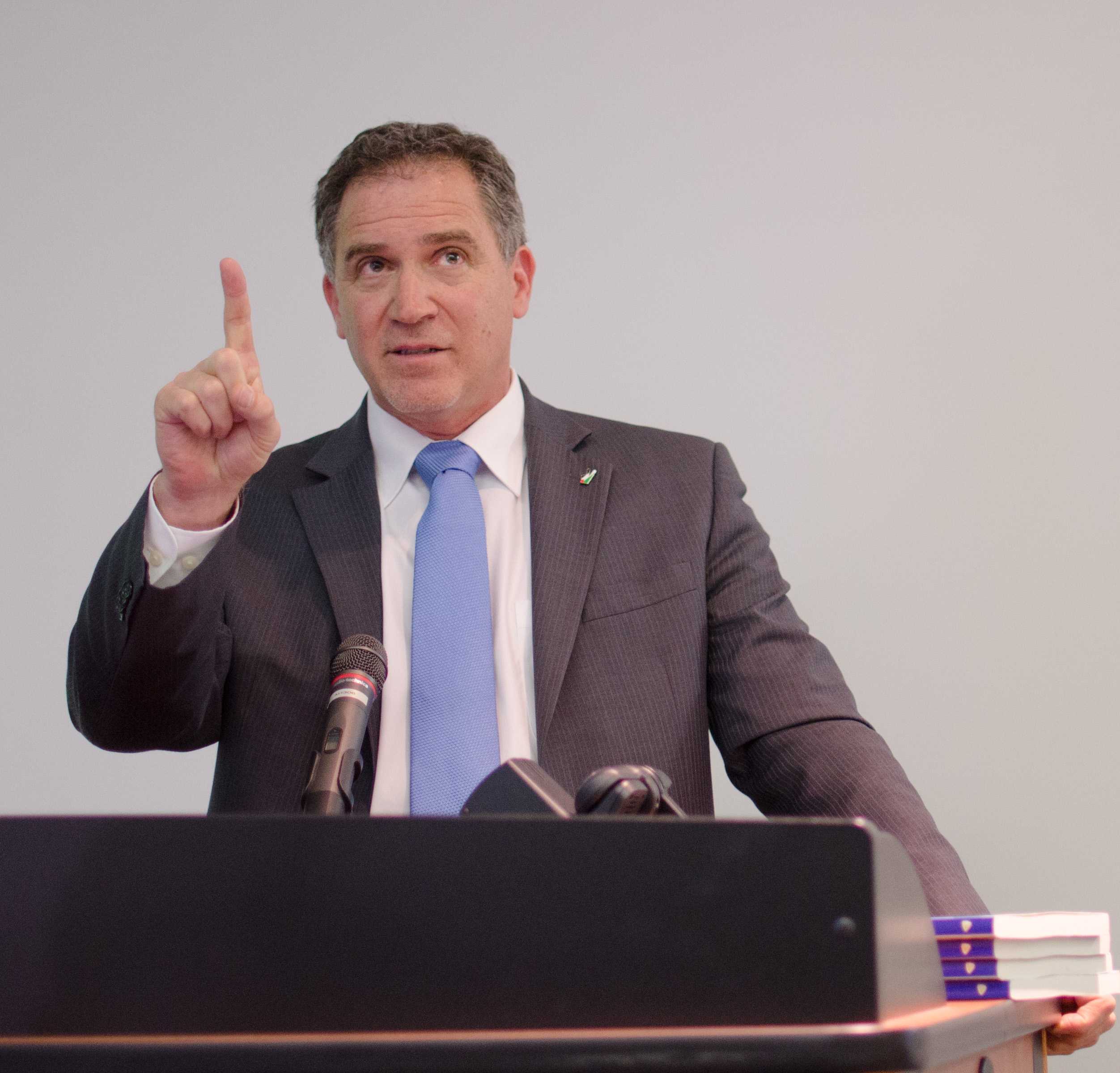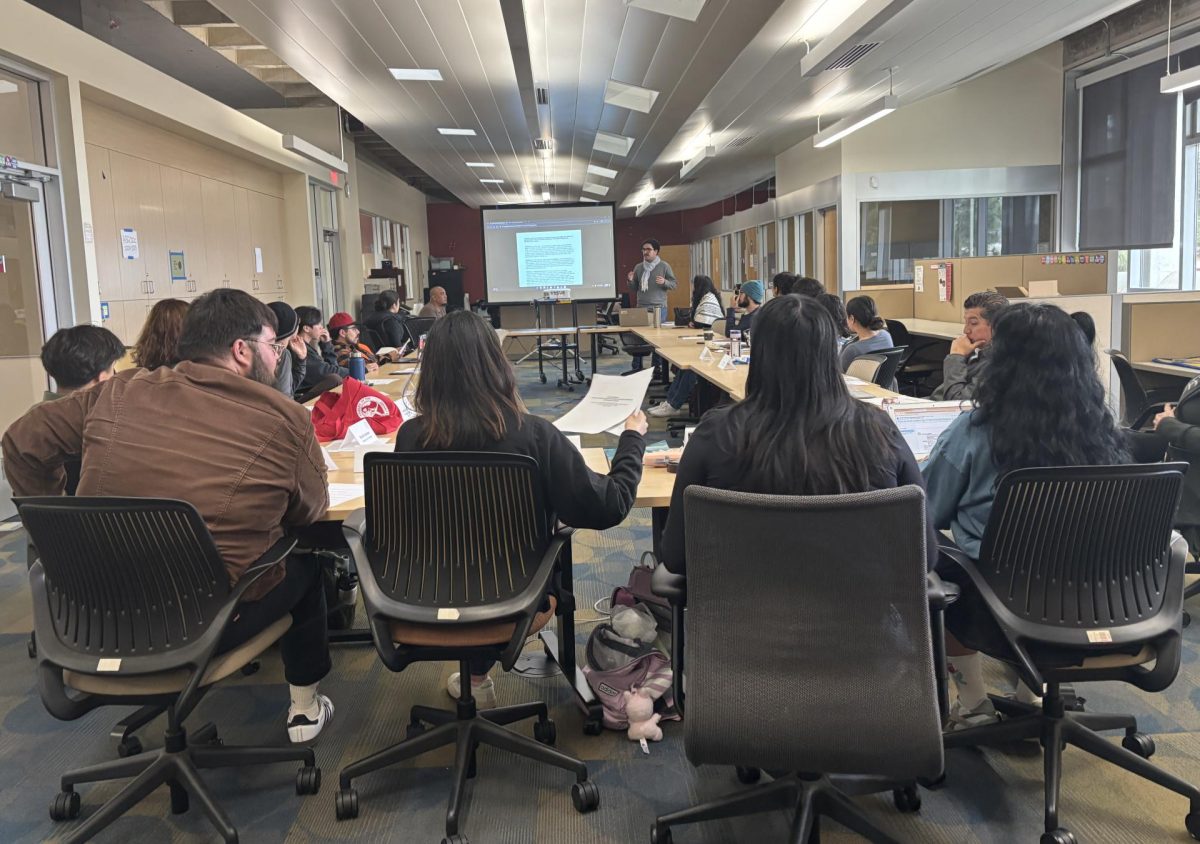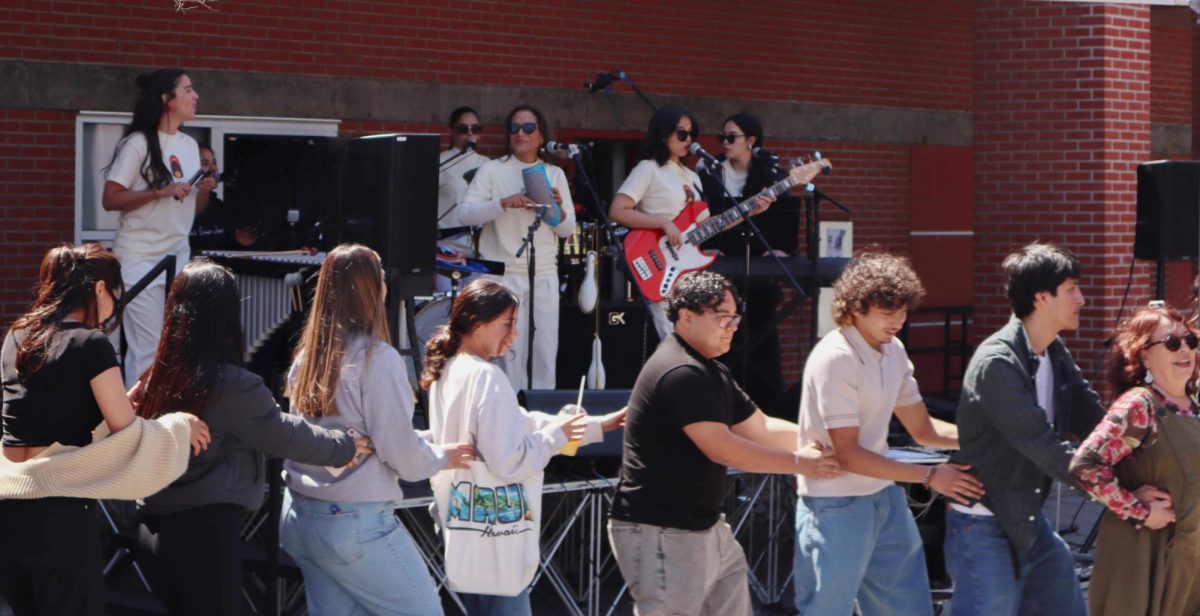Miko Peled, author of “The General’s Son,” made an appearance at San Diego City College on March 23 to give a presentation on his take on the Israeli and Palestinian conflict. For those who may not be acquainted with the Israeli-Palestinian conflict, it is a fight over the land of Israel — who gets it and how it is controlled.
Beforehand, a few students and faculty members scrambled around to get to the classroom in which the presentation would be held. Originally scheduled in room V-101, but due to an error on the academic calendar, it took a moment to find the exact location.
In attendance that day was Denise Dalaimo Mussbaum, professor of sociology and department chair for 16 years from Mt. San Jacinto College. Mussbaum was opposed to the teachings of Peled and she was very vocal about it.
“Video clips on the internet show him outright lying. He refers to Israel as an apartheid state which is absolutely wrong. He demonizes Israel and Jews and he has called for the end of Israel, the destruction of Israel. These types of slurs against any other minority group would never be allowed,” she said.
Eventually everyone in attendance gathered into room AH-306. Peled, who is Israeli but still opposes Israel’s position in the conflict, gave everyone time to settle in and then began his speech.
Peled started by talking about the apathy and feelings of neglect that Americans obviously have for the issue at hand. He claimed that Americans have very little interest in the issue unless they are involved and affected by the matter.
Peled also expressed that although the conflict predominantly affects Israelis, Palestinians and Jewish people, “Americans are actively participating, whether they like it or not.”
He continued to speak about Americans and their ignorance to the amount of money Americans contribute to Israel annually. Americans have agreed to give African countries $40 million over three years, yet Israel receives $40 million over the course of four days. Israel is a completely developed country accumulating $10 million a day and it is amazing as Peled stated, “Americans either don’t know or don’t care.”
The purpose of Peled’s speech was to deliver the message that everyone needs to be a lot more aware of the situation and about what constantly occurs in Israel due to the injustice and lack of peace in the land. As an Israeli himself, Peled believes that was is happening is wrong.
“the amount of violence that continues to develop due to the result of poverty,” Peled claimed.
According to Peled children are being attacked and are not seeking proper medical attention because they are not allowed in to certain hospitals. The population size is 140 square miles and there are about 1.7 million people and an accumulated one million refugees since 1948 in the occupied Palestinian territories.
The average age of those in poverty is 16 and 56 percent are under the age of 18. The unemployment rate is 81 percent and 80 percent are living below poverty. There is a 80 percent food insecurity and over 90 percent of the water is unsafe.
In order to solve these major Palestinian problems, it will take more involvement from those around the globe.









